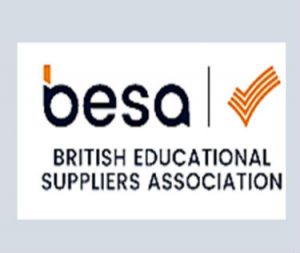
NCC Education is an awarding organisation and provider of British education, claiming to offer a complete education solution to a global network of fifty Accredited Partner Centres in more than 50 countries.
Originally a division of the National Computing Centre – first established as a government IT initiative in 1966 – it initially offered IT qualifications. Gradually expanding its higher education portfolio to include Business, English Language, and Foundation level qualifications. In 1997, they incorporated as an awarding organisation of British qualifications recognised by universities, professional bodies and employers worldwide.
ProTech, on the other hand, has been delivering specialist CRM software and change management services to the Not for Profit (NFP) sector for more than 20 years. Its Pro-9 CRM software operates in a Microsoft environment and delivers easily configurable specialist NFP modules with CRM, workflow, process automation and reporting capability at their core: Membership & Subscriptions, Learning & Education/Professional Qualifications, CPD, Event Management, Annual Appeal, Fundraising, Marketing & Campaigns and Sales Ledger.
NCC Education and ProTech have now teamed up, with the latter’s digital platform, ProWeb, and its specialist CRM software Pro9, providing a secure, integrated web and CRM solution hosted in ProTech’s ProCloud. In choosing the ProTech solution NCC Education hopes to significantly improve its levels of customer service, reduce its operating costs, and support its strategy of giving its customers, employee users, and learners, a web based communications channel.
 “Our current Awarding Body Management System, developed around ten years ago, is now constrained by physical and technological limitations,” said Emma Dawkins, Director of Qualifications and Academic Delivery for NCC Education.
“Our current Awarding Body Management System, developed around ten years ago, is now constrained by physical and technological limitations,” said Emma Dawkins, Director of Qualifications and Academic Delivery for NCC Education.
“As our Awarding Body Management System is now out dated it does not integrate fully or in some areas at all, with other systems we deploy. This has resulted in our inability to take advantage of modern technology and its application in innovative teaching delivery and assessment activity which are at the core of an awarding organisation.”
NCC Education will move away from its existing ‘on premise’ system to a cloud-based Awarding Body Management System, thereby removing the need to manage, support, and host infrastructure. This was one of the key criteria in the selection of ProTech and its integrated web and CRM solution hosted in ProCloud, a secure, always available, fully serviced Cloud infrastructure.
This digital platform should ensure that NCC Education’s system will be scalable, flexible and adaptable to meet its current and future business requirements, and provide integration with other major systems it uses. A new Centre Portal for NCC Education is envisaged, that will initially provide an online interface for its Accredited Partner Centres. This will allow them to perform additional online activities including: registering students, and their specific qualification journeys; scheduling exams, conducting online exam assessments, and receive qualification results; and monitoring and tracking students’ progress.
ProTech’s cloud-based solution will compliment NCC Education’s existing Virtual Learning Environment (VLE), ensuring that it offers learner-led and customised features in line with and exceeding those of other VLE’s currently on the market.
Business benefits to be delivered will include: user accounts fully integrated with NCC Education’s main  student and Centre Portal database; automated workflow; and integrated document management across the organisation. Importantly, NCC Education’s financial processes and data will now be integrated with its accounting system. Integrated web and CRM is a key element of NCC Education’s overall business strategy. The objective being support of operational management and delivery of NCC Education’s core teaching and assessments business.
student and Centre Portal database; automated workflow; and integrated document management across the organisation. Importantly, NCC Education’s financial processes and data will now be integrated with its accounting system. Integrated web and CRM is a key element of NCC Education’s overall business strategy. The objective being support of operational management and delivery of NCC Education’s core teaching and assessments business.
For more info visit: www.protech.co.uk








 “Our current Awarding Body Management System, developed around ten years ago, is now constrained by physical and technological limitations,” said Emma Dawkins, Director of Qualifications and Academic Delivery for NCC Education.
“Our current Awarding Body Management System, developed around ten years ago, is now constrained by physical and technological limitations,” said Emma Dawkins, Director of Qualifications and Academic Delivery for NCC Education. student and Centre Portal database; automated workflow; and integrated document management across the organisation. Importantly, NCC Education’s financial processes and data will now be integrated with its accounting system. Integrated web and CRM is a key element of NCC Education’s overall business strategy. The objective being support of operational management and delivery of NCC Education’s core teaching and assessments business.
student and Centre Portal database; automated workflow; and integrated document management across the organisation. Importantly, NCC Education’s financial processes and data will now be integrated with its accounting system. Integrated web and CRM is a key element of NCC Education’s overall business strategy. The objective being support of operational management and delivery of NCC Education’s core teaching and assessments business.
